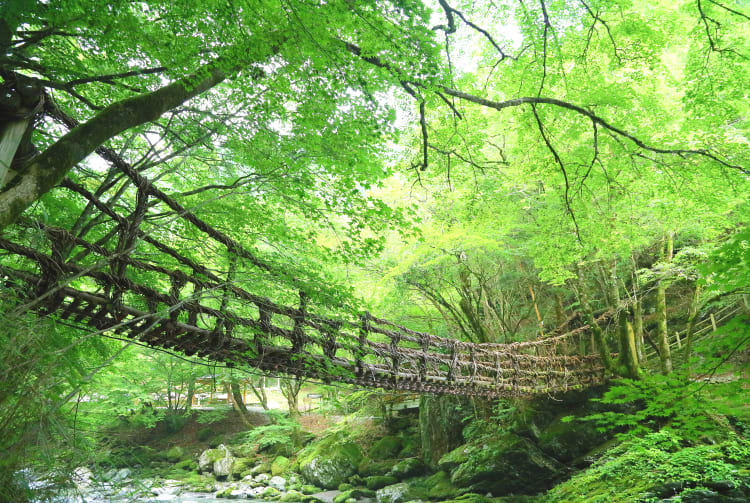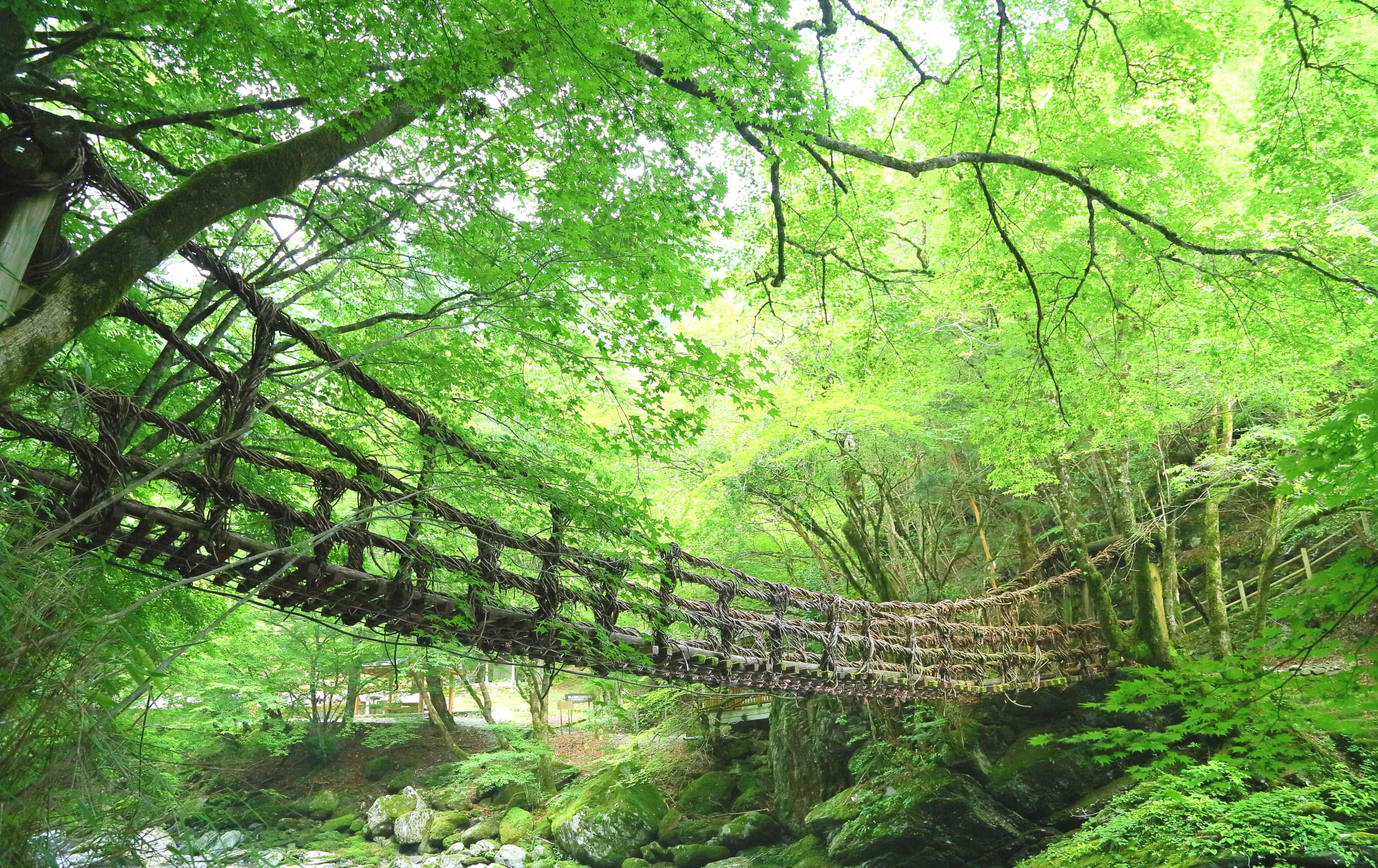Suspend disbelief and step back in time crossing the vine bridges of Iya Valley
Connecting the mountainous terrain of Tokushima's Iya Valley , these vine bridges, or kazurabashi, allow you to experience the rugged side of Japan.
How to Get There
The most accessible and popular bridge, Iya Kazurabashi, can be reached by bus from JR Awa Ikeda and JR Oboke stations along the JR Dosan train line between Okayama and Kochi.
Awa Ikeda Station can also be reached via the hourly Nanpu limited express service from Okayama (90 minutes).
From Awa-Ikeda Station buses stop at Iya Onsen Mae (50 minutes) or Kazurabashi (70 minutes) bus stops.
From Oboke Station take the Kazurabashi-iki Shikoku Kotsu Bus and get off at the "Kazurabashi" bus stop. Iya Kazurabashi is a 5-minute walk from there.
The Oku-Iya Kazurabashi bridges are located one hour by car from Iya Kazurabashi Bridge. They are best visited by rental car or via private tour.
Quick Facts
The bridges are handwoven, reinforced with hidden steel cables and rebuilt every three years
The Oku-Iya Kazurabashi are a husband and wife bridge pairing
Only three of the original 13 bridges remain
Literal lifelines
Located in an area of steep gorges filled with rushing water, the bridges once served as common and important lifelines for people in the remote and mountainous Iya Valley . Traditionally made by weaving together wisteria vines, the suspension bridges were also deterrents to outsiders, which could easily be cut down if enemies approached.
The largest and most accessible bridge is the Iya Kazurabashi, located in the valley's west. At 45 meters long, two meters wide and suspended 14 meters above the water, crossing this bridge is not for anyone with a fear of heights.
Interwoven histories
Different theories exist as to the origins of the bridges. One legend claims they were built by the famous Buddhist monk Kobo Daishi (774-835) to assist the villagers. A more common story is that the bridges were constructed by defeated Heike soldiers fleeing their Genji pursuers in the 12th century, during one of Japan's many civil wars.
The Oku-Iya Vine Bridges
The more remote Oku-Iya Kazurabashi bridges, a husband and wife bridge pairing, can be found in the eastern part of the valley near Mt. Tsurugi , a short walk through a forest. The lack of development around this area will make you feel as if you've stepped back in time.


























































